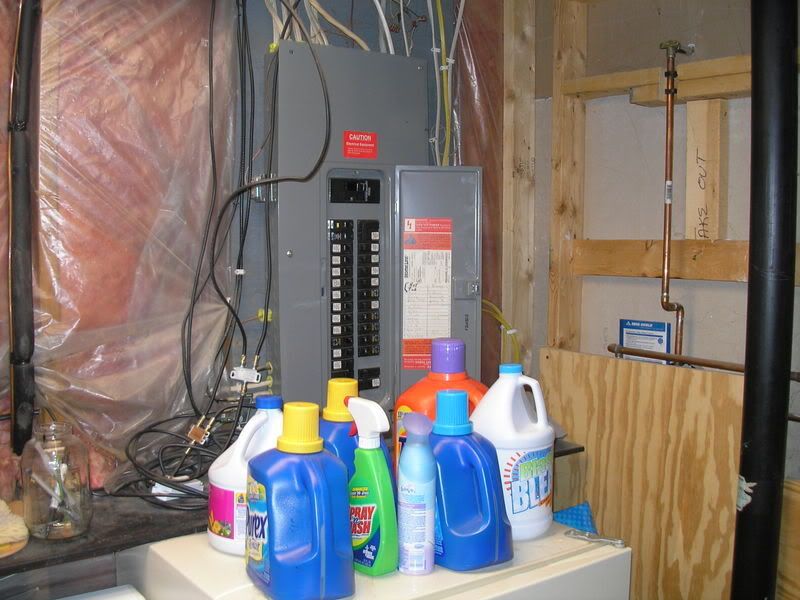I feel special now..
I feel special now..
From another thread (I'd don't mean to pick on you, mxslick):
I'm curious - how many people believe that a panelboard in a bedroom is not a safe practice? I've never thought twice about it.
Thanks George, I don't mind being singled out on this topic, and I don't feel picked on.

I have read through this thread so far before coming into the fray..

dreamsville is very close to my line of thinking on this subject, so with that a a foundation, (and the picture of the exploded panel from the other thread..any chance the mod squad could kindly insert it into this post as I don't know how to)
Ok let's start with some basic facts that I think we can all agree upon:
The panel contains many connections as already mentioned;
The panel is also fed with a high-amperage feeder which would allow a bigger fault current to flow in the event of a failure;
The overcurrent devices themselves (think Zinsco and Murray) can sometimes fail by arcing/burning out;
By the same token, violent failures of panels are pretty rare (as opposed to recepts and other devices);
Panels are generally robust and designed to contain faults, especially if the door is kept closed (although the panel in the other thread had the door blown off and across the room);
And finally, the NEC has seen no need to prohibit a panel in a bed room.
Ok, now consider this scenario:
You're in a bedroom, sound asleep, when your panel undergoes a fault that either blows the door off or creates a lot of smoke if not starting a fire.
Smoke alarms or not, what are the odds that you'll either wake up in time to get out safely before the smoke kills or incapacitates you, or that you are blocked from exiting because that panel is near or behind your door? Or in the case of the other thread, that door blows off and hits you while in bed? I guarantee that any panel door blown off and hitting you will cause serious injury or death.
Obviously it would be much safer if that happens (as in the other threads case) in another room altogether, it would allow you time to get out.
The other argument (not in a bad way) in that thread from long ago was well, don't put the panel in the master bedroom. Ok, great, now let's allow the kids to be exposed to the hazard instead..would your kids know what to do if they saw smoke/flames or heard a strange sound coming from that panel? What if your kids were asleep when that happened? Would they be able to get out safely? Would you be able to safely get to them to get them out?
These are all the things I thought about when questioning why panels are allowed in bedrooms. In only a few cases (my own apt right now for example) it would be literally impossible to put the panel anywhere else and meet Code requirements for accessibility and working clearances. (My panel is in a doghouse outside on the side of the building, I have all my branch circuits run up to the attic first and then distributed.) In many of my past apts all the panels but one were in the smaller bedroom, the exception had it in the laundry closet in the hallway. (which, um, by the was wasn't Code for workspace once the washer and dryer were in place.. )
It was these points which had persuaded that "stubborn old guy" to see what I was talking about. There were even a few who suggested in light of that information maybe the NEC should ban panels in bedrooms.
My own take on the subject is simply if I have control over where the panel would go, no way in heck would I allow it in any of my bedrooms. Find a place for it or designate an electrical room in the plans and keep it away from any egress paths.
But if I worked for a builder or EC (and I have) and the panel is to be placed in the bedroom, that's where I put it, and I make damn sure that it is carefully wired and all connections are torqued and NO-Lox'd as needed.


